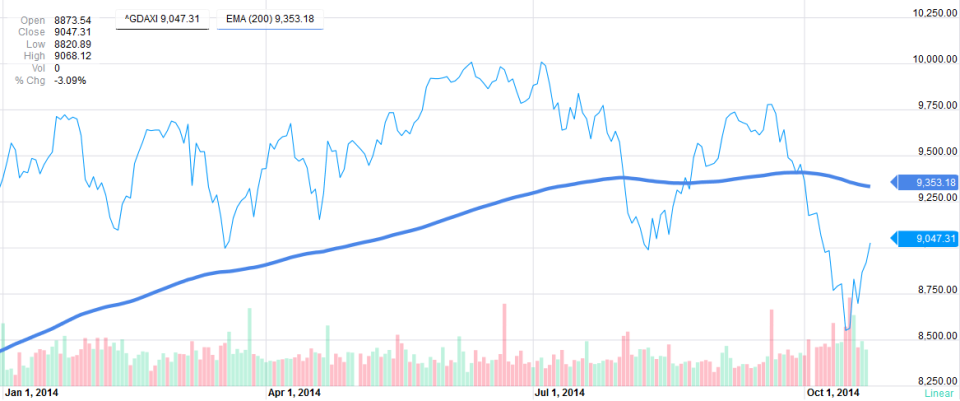Recon Capital Launches First U.S.-Listed DAX ETF
Recon Capital, a relatively new player in the exchange traded fund arena, has partnered with the Deutsche Börse to launch the first U.S.-listed ETF that tracks the DAX, a widely monitored German blue-chips index.
On Thursday, the Recon Capital DAX Germany ETF (DAX) began trading, according to a press release.
“Germany continues to be among the most promising and compelling economies in Europe,” Hartmut Graf, chief executive officer of STOXX Limited, said in the press release. “As the trusted measure of German blue-chips, DAX is one of the leading indices for financial products in the world. For the first time, it underlies ETFs in three key financial centers in Europe, Asia and now the United States.”
The DAX, or Deutscher Aktienindex, is comprised of 30 largest and most liquid companies on the German equities market. The companies make up about 80% of Germany’s stock market capitalization. Additionally, each individual component’s weight is capped at 10% of the index.
According to the Deutsche Börse, the DAX’s sector weights include chemicals 23.1%, automobile 16.6%, industrial 10.7%, insurance 10.5%, software 6.7%, banks 6.0% and utilities 5.5%.
The index’s top holdings include Bayer AG 10.2%, Siemens AG 9.5%, BASF SE 8.5%, Daimler AG 7.7% and Allianz SE 7.5%.
With its heavy tilt toward large, multi-national companies, the DAX index may benefit from a depreciating euro currency. A weaker euro would help support export growth and potentially generate greater revenue from overseas operations for the multi-nationals.
Over the past week, the DAX has increased 4.3% but the index has declined 13.1% year-to-date. In comparison, the iShares MSCI Germany ETF (EWG) , the largest U.S.-listed Germany ETF, gained 1.3% over the past week and declined 16.4% year-to-date.
Recon Capital also offers one other ETF, the Recon Capital NASDAQ-100 Covered Call ETF (QYLD) . QYLD provides a covered-call strategy that targets Nasdaq-100 securities.
DAX Index
Source: Yahoo! Finance
For more information on new fund products, visit our new ETFs category.

